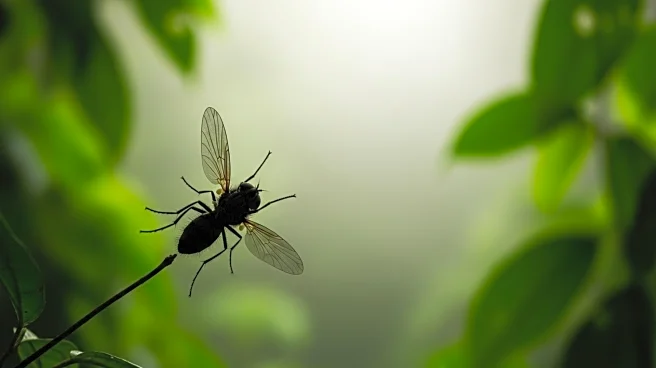What's Happening?
NPR's science podcast, Short Wave, has highlighted several intriguing scientific discoveries. One of the key stories involves the migration of hoverflies, which are found to carry pollen over long distances, potentially impacting plant genetics and adaptation to climate change. Another significant finding is the increase in tree size in the Amazon rainforest over the past three decades, attributed to higher carbon dioxide levels. Additionally, the podcast discusses the sounds made by fish, which can provide insights into marine ecosystems.
Why It's Important?
These scientific findings have broad implications for understanding ecological and environmental dynamics. The hoverfly migration study suggests that these insects play a crucial role in pollination and genetic exchange among plants, which could be vital for plant adaptation to changing climates. The growth of Amazon trees highlights the complex interactions between carbon emissions and forest ecosystems, emphasizing the importance of forests in carbon sequestration. The study of fish sounds offers a non-invasive method to monitor marine biodiversity and health, which is critical for conservation efforts.
What's Next?
Future research will likely focus on the long-term impacts of these findings. Scientists may explore the genetic implications of hoverfly-mediated pollen transfer and its role in plant resilience. In the Amazon, ongoing studies will assess how increased tree growth affects carbon storage and forest health amid deforestation and climate change. The development of sound libraries for fish could enhance marine conservation strategies, providing a deeper understanding of ecosystem dynamics and aiding in the protection of vulnerable species.










